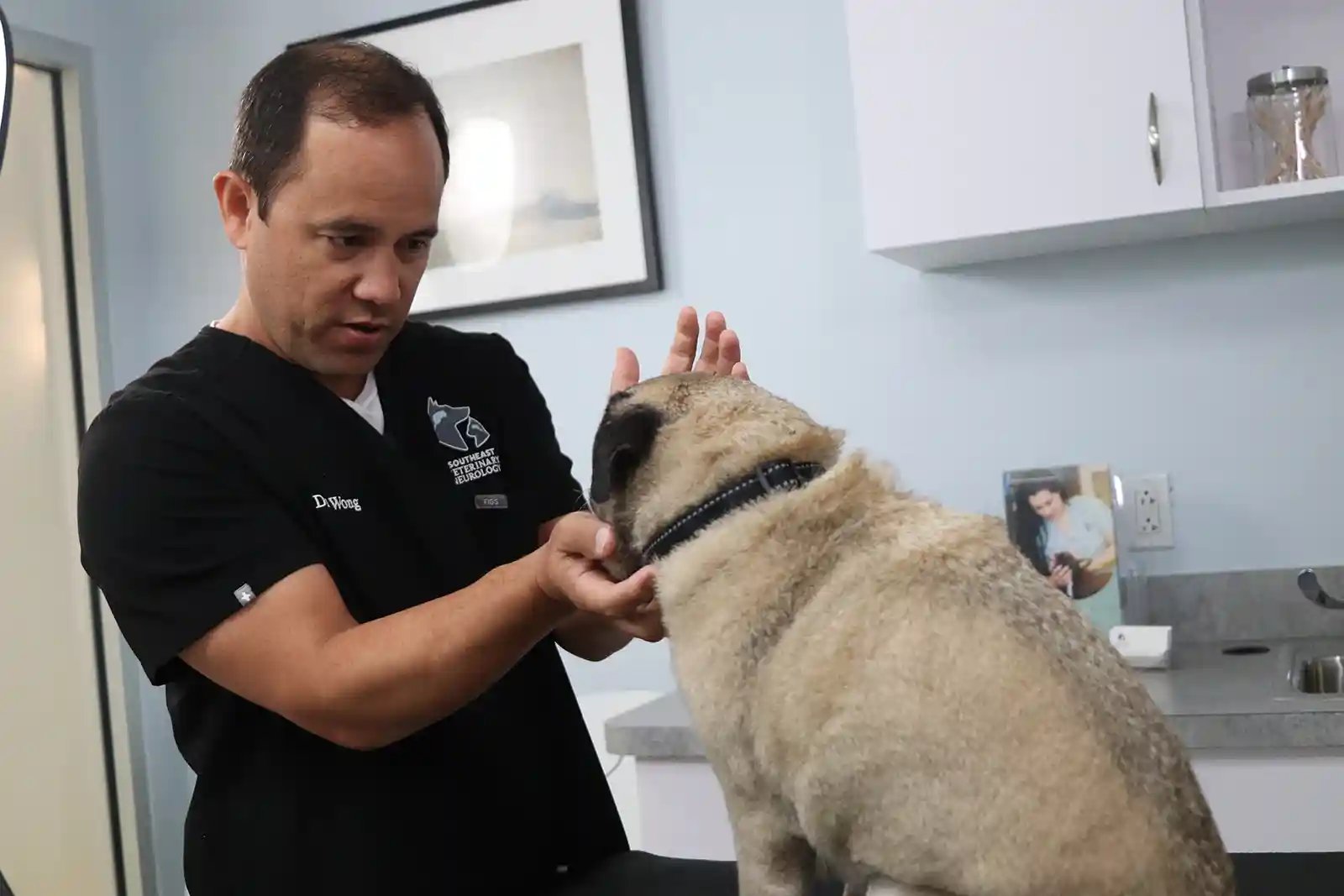Dog Epilepsy Treatment and How to Manage It
Has your dog been diagnosed with epilepsy? Epilepsy is the most common neurological condition in dogs. Although an underlying cause is not always found, rest assured that there is an appropriate dog epilepsy treatment to manage your dog’s frequent seizures.

What Is Epilepsy in Dogs?
First of all, what are seizures? Seizures are unusually strong bursts of electrical activity in the brain. During an episode, your dog may lose consciousness, stiffen up, collapse, twitch, and paddle its legs. It is also common to urinate or defecate. A seizure can last a few seconds or a few minutes, and can be highly upsetting to both the pet and pet parent.
“The term epilepsy typically refers to idiopathic epilepsy, a condition characterized by recurrent seizures with no identifiable cause,” says Dr. Michael Wong, Founder and Veterinary Neurologist at Southeast Veterinary Neurology.
Ironically, idiopathic epilepsy is the most common “cause” of seizures in dogs. Epilepsy in dogs is most likely genetic and manifests between six months and six years old as whole-body seizures. There is typically a regular pattern to the episodes, yet dogs will act completely healthy between them and will also have a normal neurological examination.
What Is the Best Dog Epilepsy Treatment?
Appropriate dog epilepsy treatment depends on accurately diagnosing the underlying cause. Therefore, it’s important to consult a veterinary neurologist.
Diagnosing Epilepsy in Dogs
First, we want to understand when seizures happen, how long they last, and how frequently they occur. It is also important to know what your dog did before, during, and after the episode.
Next, physical and neurological exams help us narrow down the possibilities while shedding light on issues that may or may not be related to your dog’s seizures.
Diagnostics begin with baseline blood and urine testing along with chest and abdominal X-rays to rule out certain causes. If, after this, we haven’t found a cause – or if your dog had an abnormal neurological exam – we may suggest more advanced testing. High-field MRI (magnetic resonance imaging) is the best way to identify problems inside the brain, and a CSF (cerebrospinal fluid) analysis can uncover further issues.
“The only way to definitively diagnose epilepsy is to rule out all other causes. Idiopathic epilepsy is a diagnosis by exclusion,” Dr. Wong explains.

Treating Epilepsy in Dogs
Once your dog has been diagnosed with epilepsy, your veterinary neurologist will be able to begin developing an appropriate treatment plan.
If an underlying cause for your dog’s seizures is discovered, it is imperative to address it concurrently. Meanwhile, anti-seizure medication is used to control the frequency, severity, and duration of episodes. There are a number of options, and your neurologist will talk to you about the best fit for your dog.
All anti-seizure medications have side effects. Dog epilepsy treatment is about finding the right balance between seizure activity and medication side effects. This balance is unique to each dog, and some trial and error is involved in finding your dog’s optimal treatment plan.
How Is Dog Epilepsy Managed?
Epileptic dogs can live long, happy lives, but it’s important to realize that dog epilepsy treatment will almost always require lifelong commitment. Aside from administering medication, you may feel somewhat powerless, but knowing what to do and what not to do during a seizure can help:
- Do NOT restrain your dog during episodes, and keep your hands away from its mouth. Touch will not provide any relief, and there is a chance you will be bitten.
- Do make sure your dog can’t hurt itself on anything or fall off furniture, down stairs, or in water.
- Do always take note of how long the seizure lasts. Most seizures will stop within 30 seconds to a minute.
You do not need to call a veterinarian every time your dog has an episode. However, if your dog is having a seizure for the first time or begins having them more often than usual, please do.
PLEASE NOTE: If a seizure lasts more than three minutes, if your dog has more than two seizures in 24 hours, or if you think your dog has been exposed to a toxin, this is an emergency situation. Get your dog to a veterinary facility immediately. DO NOT WAIT for a seizure lasting more than three minutes to end.
Where Can I Find Dog Epilepsy Treatment?
Although there is anecdotal evidence supporting diet, acupuncture, supplements, and CBD for dog epilepsy treatment, it is critical to consult a veterinary neurologist to rule out underlying causes and arrive at the right treatment plan for your dog.
Veterinary neurologists are experts in the diagnosis and treatment of epilepsy in dogs. At Southeast Veterinary Neurology, our board-certified experts are here to help you and your dog live a long, happy life together. Contact any of our locations in Miami, Boynton Beach, Jupiter, or Virginia Beach to find the best dog epilepsy treatment for your best friend.